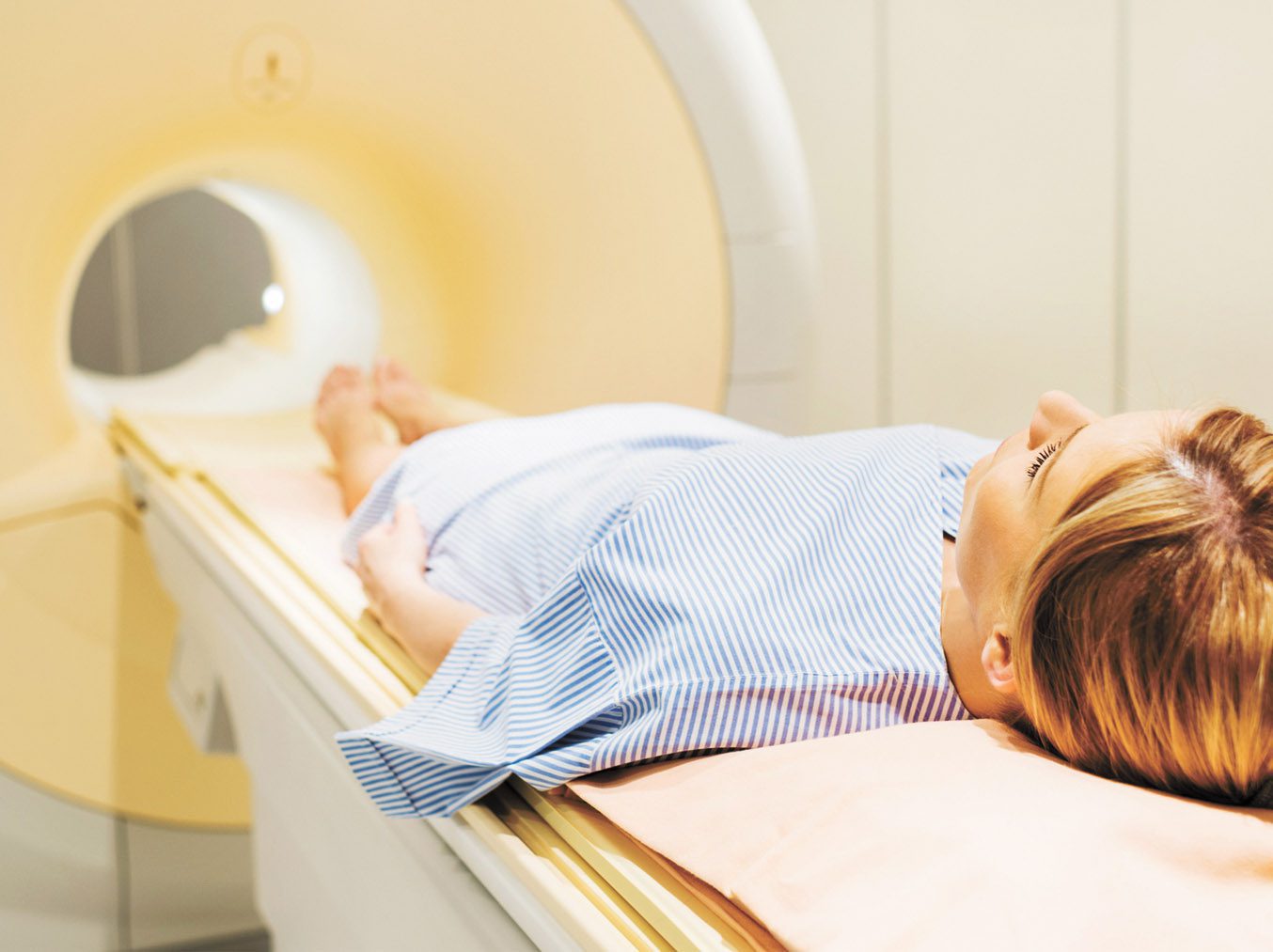 Magnetic resonance imaging (MRI) is a non-invasive, radiation-free imaging test that can be used to detect and analyze breast cancer and other abnormalities. MRI uses a powerful magnet and radio waves to create highly detailed images that are sent to a computer screen for analysis. To assess cancer cells, breast MRI requires the use of an injectable dye, which travels through the system and is quickly absorbed by tumors and lesions. MRI captures multiple images of breast tissue, making it especially useful in discovering invasive breast cancer in its earliest stages.
Magnetic resonance imaging (MRI) is a non-invasive, radiation-free imaging test that can be used to detect and analyze breast cancer and other abnormalities. MRI uses a powerful magnet and radio waves to create highly detailed images that are sent to a computer screen for analysis. To assess cancer cells, breast MRI requires the use of an injectable dye, which travels through the system and is quickly absorbed by tumors and lesions. MRI captures multiple images of breast tissue, making it especially useful in discovering invasive breast cancer in its earliest stages.
Because it takes about 30-60 minutes to perform and may need a contrast agent, MRI is not used as a routine screening tool for most women, but rather a supplementary exam when a mammogram and/or ultrasound reveals something requiring further investigation. MRI is able to highlight details of questionable tissue so that your referring clinician and RAO radiologist can examine it in greater detail for an accurate diagnosis. It is also an excellent additional screening exam for women who fall into a high-risk category. In fact, The American Cancer Society recommends that those at high risk of breast cancer get both an annual MRI screening along with an annual mammogram.
Breast MRI is often recommended for patients who:
. Need additional information about a mass revealed by mammography and/or ultrasound
. Are considered high risk due to personal or family history of breast or ovarian cancer
. Have very dense breast tissue that doesn’t show up properly on mammography
. Have a leak or rupture of a breast implant
. Have a history of precancerous breast changes including atypical hyperplasia or lobular carcinoma in situ
. Have a hereditary breast cancer gene mutation (BRCA1, BRCA2 or CDH1)
. Have been diagnosed with breast cancer
The Exam
During a breast MRI, you are asked to lie facedown on a specialized scanning table, which has a hollow area designated for breast imaging. The entire table slides into the MRI machine so that the magnetic field and radio waves can surround the breasts from every angle and capture images.
RAO offers breast MRI at our Medical Imaging Center, with all results read in-house by Board Certified radiologists who sub-specialize in breast imaging. Our Women’s Imaging Center has been designated a Breast Imaging Center of Excellence by the American College of Radiology due to its outstanding practice standards.
Talk to Your Referring Clinician
If you had something suspicious show up on your breast imaging, are at high risk of breast cancer because of a genetic mutation or a personal or family history of breast cancer, talk to your medical provider about whether breast MRI from RAO might be an option for you.
Radiology Associates
(352) 671-4300
www.RAOcala.com
 Central Florida Health and Wellness Magazine Health and Wellness Articles of the Villages
Central Florida Health and Wellness Magazine Health and Wellness Articles of the Villages



